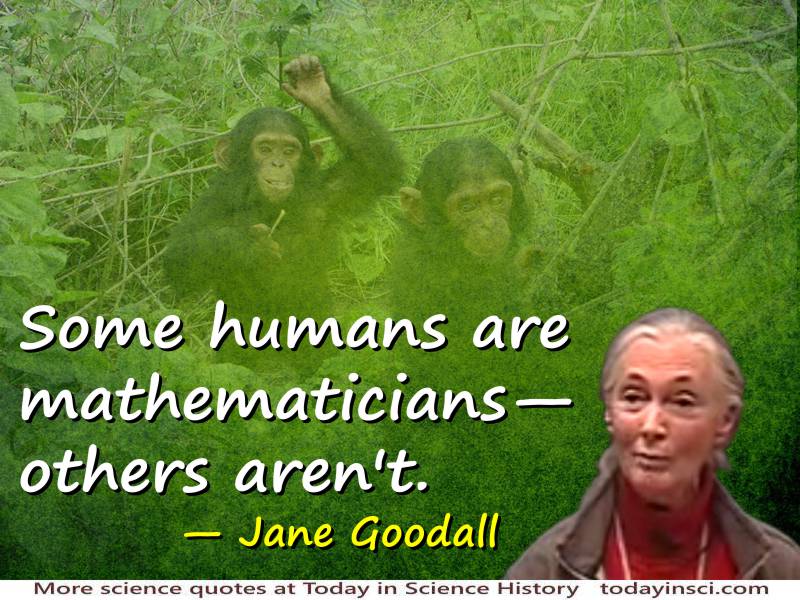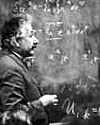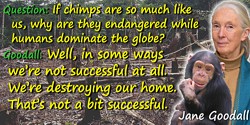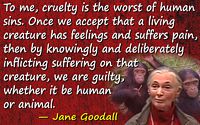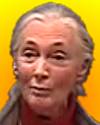 (source)
(source)
|
Jane Goodall
(3 Apr 1934 - )
English primatologist, anthropologist and ethnologist who spent 45 years studying chimpanzee social behaviour. She founded the Jane Goodall Institute.
|
Jane Goodall - Some humans are mathematicians
Illustrated Quote - Large (800 x 600 px)
More Jane Goodall quotes on science >>
This quote, in fact, was not primarily directed to criticize the ability of some humans as mathematicians, but was only used as an example of how skill sets can vary within a species.
Writing in her classic book, In the Shadow of Man, Jane Goodall outlines the ability of chimpanzees to use tools, such as using stems and sticks to capture insects from recesses. She also describes ways observed in a laboratory setting for chimpanzees making tools—such as fitting tubes together, or uncoiling a wire, to reach food placed outside the cage.
However, even “with tuition” to show how a stone hand axe could break a piece of wood into splinters suitable to obtain food from a narrow pipe, exhaustive tests with one chimpanzee yielded no emulation. However, Goodall notes, many other chimpanzees would need to be tested in the same way before drawing the conclusion that the species in general is unable to perform this act, just as
“Some humans are mathematicians—others aren't.”
- Science Quotes by Jane Goodall.
- 3 Apr - short biography, births, deaths and events on date of Goodall's birth.
- Video: What Separates Us From Chimpanzees? - Jane Goodall talk (2007, 29 min).
- Jane Goodall - context of quote I want to wander in the wild - Medium image (500 x 350 px)
- Jane Goodall - context of quote I want to wander in the wild - Large image (800 x 600 px)
- Jane Goodall - context of quote Some humans are mathematicians - Medium image (500 x 350 px)
- Jane Goodall - context of quote Cruelty is the worst of human sins - Medium image (500 x 350 px)
- Jane Goodall - context of quote Cruelty is the worst of human sins - Large image (800 x 600 px)
- My Life With the Chimpanzees, by Jane Goodall. - book suggestion.
